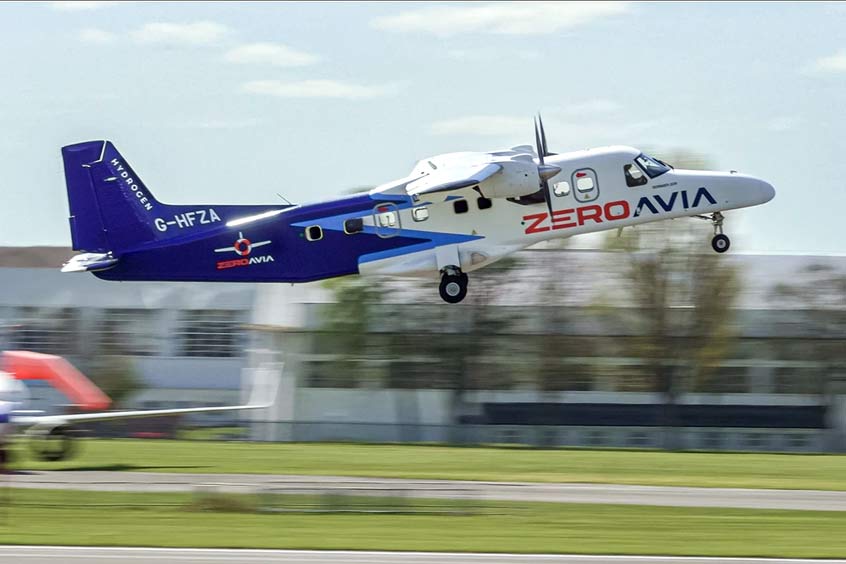ACE 2026 - The home of global charter.
 The bimonthly news publication for aviation professionals.
The bimonthly news publication for aviation professionals.

ZeroAvia and Verne,, a hydrogen storage and refuelling technology startup, are to jointly evaluate the opportunities for using cryo-compressed hydrogen (CcH2) on board aircraft and for conducting CcH2 refuelling from gaseous hydrogen (GH2) and liquid hydrogen (LH2) sources.
Cryo-compressed hydrogen stores gaseous hydrogen at cold temperatures, increasing the energy density of the fuel, which could enable a longer range compared to GH2 powered aircraft.
According to analysis by Verne, cryo-compressed hydrogen can achieve 40 per cent greater usable hydrogen density than liquid hydrogen, and 200 per cent greater usable hydrogen density than 350 bar gaseous hydrogen. Additionally, the application of cryo-compressed hydrogen promises to significantly reduce the cost of densification and refuelling time, to increase dormancy time relative to LH2 systems and to potentially eliminate venting for pressure management.
The two companies will assess the potential benefits of scaling CcH2 storage and refuelling infrastructure at airports around the world as hydrogen-electric propulsion scales to support larger and larger aircraft. They will also work together to develop a model for initial airport locations in California.
Verne has developed large hydrogen storage systems enabling 4MWh of storage, and it recently demonstrated its 1MWh CcH2 storage prototype with Lawrence Livermore National Laboratory. Verne has received federal grants for the development of its technology, including from ARPA-E, and is backed by Amazon's Climate Pledge Fund, Caterpillar Venture Capital, Collaborative Fund and other leading investors. As well as undertaking rapid work to develop its propulsion technology, ZeroAvia has been active in demonstrating hydrogen airport infrastructure.
Chief business officer Sergey Kiselev says: "With our engines just a few years from flying passengers and cargo, it is important for us that we find the optimal solutions to support airport hydrogen ecosystems. Increasing storage capacity and refuelling speed using novel technologies is an important avenue for scaling up hydrogen aviation and we're delighted to work with Verne on assessing the role of cryo-compressed hydrogen."
Ted McKlveen, CEO and co-founder of Verne, adds: "Aviation is a massive potential market for Verne as it becomes clear that hydrogen is critical to tackling the industry's climate impact. Airports can be centres of hydrogen activity, with co-located hydrogen demand for aircraft, airport ground operations and on-road commercial transportation. Cryo-compressed hydrogen has a key role in optimising this ecosystem."
ZeroAvia is already flight testing a prototype of its ZA600 hydrogen-electric engine aboard a Dornier 228 aircraft at its UK base, and is working to retrofit a prototype of its ZA2000 to a 76 seat Dash 8 400 in the US. Hydrogen-electric engines use hydrogen in fuel cells to generate electricity, which is then used to power electric motors to turn the aircraft's propellers. The only emission is water.